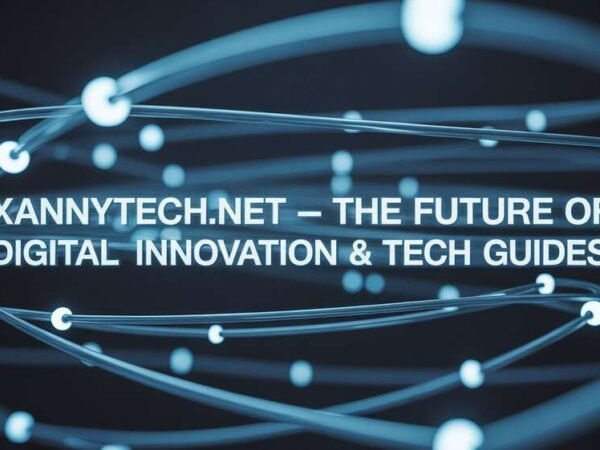The hospitality industry embraces generative AI to enhance guest experiences, streamline operations, and drive innovation. From personalized recommendations to automated content creation, generative AI platforms are revolutionizing how hospitality businesses operate and engage with customers. This article explores the various use cases of generative AI platforms in hospitality, highlighting their benefits, applications, and future potential.
Introduction to Generative AI Platforms in Hospitality
What is Generative AI?
Generative AI refers to artificial intelligence technologies that create new content—such as text, images, or designs—by learning from existing data. Unlike traditional AI, which focuses on analysis and prediction, generative AI generates novel outputs through models like Generative Adversarial Networks (GANs) and Variational Autoencoders (VAEs).
How Generative AI Platforms Work
Generative AI platforms utilize advanced algorithms to produce realistic and relevant content:
- Generative Adversarial Networks (GANs) Consist of a generator and a discriminator that work together to create and refine content.
- Variational Autoencoders (VAEs): Learn data distributions to generate new, similar data points.
Critical Use Cases of Generative AI Platforms in Hospitality
Personalized Guest Experiences
Custom Recommendations and Offers
Generative AI platforms in hospitality analyze guest data and preferences to generate personalized recommendations and offers. By understanding individual preferences, AI can suggest tailored experiences, such as dining options, activities, and room amenities, enhancing overall guest satisfaction.
Personalized Communication
AI-driven systems create customized guest communication, including personalized welcome messages, follow-up emails, and special offers. Generative AI leverages data on guest behavior and preferences to ensure that communication is relevant and engaging.
Enhancing Marketing and Branding
Dynamic Content Creation
Generative AI platforms in hospitality automate marketing content creation, including social media posts, promotional materials, and website content. AI platforms generate engaging and relevant content based on trends and audience preferences, helping hospitality businesses maintain a solid online presence.
Visual Content Generation
AI-driven tools create high-quality visual content for marketing campaigns, such as promotional images and videos. By generating realistic and attractive visuals, generative AI helps businesses effectively showcase their offerings and attract potential guests.
Streamlining Operations
Automated Reservation Systems
Generative AI platforms enhance reservation systems by automating booking processes and generating personalized guest recommendations. AI-driven systems handle inquiries, manage bookings, and provide real-time updates, improving efficiency and reducing manual effort.
Intelligent Inventory Management
AI systems optimize inventory management by predicting demand, generating stock levels, and making procurement recommendations. This helps hospitality businesses manage their resources more effectively and minimize waste.
Enhancing Customer Service
AI-Powered Chatbots
Generative AI powers advanced chatbots that handle customer inquiries, provide support, and offer personalized recommendations. These chatbots operate 24/7, improving response times and ensuring guests receive timely assistance.
Virtual Concierge Services
AI-driven virtual concierge services offer guests personalized recommendations for local attractions, dining options, and activities. By generating tailored suggestions based on guest preferences, virtual concierges enhance the overall guest experience.
Improving Staff Training and Management
Simulated Training Scenarios
Generative AI creates simulated training scenarios for staff, helping them practice and improve their skills in a controlled environment. These simulations cover various situations, such as guest interactions and problem-solving, ensuring that staff are well-prepared for real-life scenarios.
Automated Scheduling and Resource Allocation
AI-driven platforms automate staff scheduling and resource allocation by analyzing demand patterns and predicting peak times. This ensures optimal staffing levels and efficient resource use, improving overall operational efficiency.
Future Trends and Innovations
Integration with Emerging Technologies
IoT and Smart Rooms
Generative AI is expected to integrate with Internet of Things (IoT) technologies to create intelligent rooms that adapt to guest preferences. AI platforms will generate personalized lighting, temperature, and entertainment settings, enhancing guest comfort and convenience.
Augmented Reality (AR) and Virtual Reality (VR)
AI-driven AR and VR applications will offer immersive experiences for guests, such as virtual room tours and interactive destination previews. These technologies will transform how guests explore and interact with hospitality offerings by generating realistic and engaging virtual environments.
Challenges and Considerations
Data Privacy and Security
Generative AI platforms handle sensitive guest data, so ensuring data privacy and security is crucial. Hospitality businesses must implement robust security measures to protect guest information and comply with regulations.
Ethical and Bias Concerns
Generative AI raises ethical concerns, such as potential bias in recommendations and content generation. Businesses must develop and adhere to ethical guidelines to ensure fair and unbiased AI applications.
Conclusion
Generative AI platforms are revolutionizing the hospitality industry by enhancing guest experiences, streamlining operations, and driving innovation. From personalized recommendations and automated content creation to improved customer service and staff training, generative AI offers numerous benefits and opportunities for growth. As these technologies evolve, they promise to transform the hospitality landscape further, delivering more efficient, personalized, and engaging guest experiences.
Do Read: What Makes the LYNK 08 Stand Out in the SUV Market?













